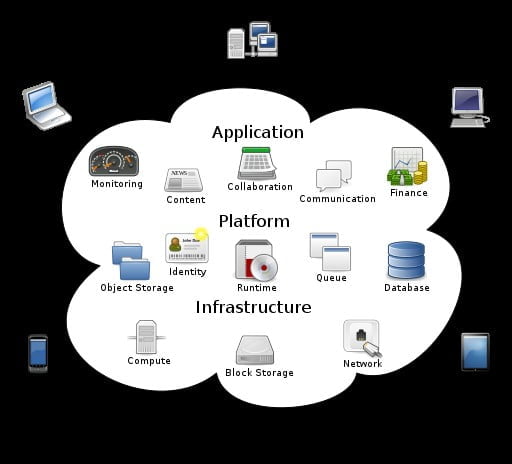Cloud Computing: An Introduction
Cloud computing is a technology that has revolutionized the way businesses operate and individuals access and store information. Simply put, it refers to the delivery of computing services over the Internet. These services include storage, servers, software, and data analytics. Cloud computing has become increasingly popular in recent years due to its flexibility, scalability, and cost-effectiveness. It has enabled businesses of all sizes to access high-quality computing services that would otherwise be out of reach. In this article, we will explore the key concepts of cloud computing that everyone should know.
Understanding the Key Concepts
What is the Cloud?
The term “cloud” refers to the internet. involves accessing computing resources over the internet, rather than from a local computer or server. These resources can include servers, storage, databases, software, and applications, which are all delivered over the internet.
Types of Clouds
There are three main types of clouds: public, private, and hybrid. Public clouds are owned and operated by third-party providers, who offer computing resources to businesses and individuals on a pay-as-you-go basis. Private clouds, on the other hand, are built and operated by a single organization, usually for internal use. Hybrid clouds combine public and private cloud services to create a more flexible and cost-effective computing environment.
Cloud Computing Services
Services can be broken down into three main categories: Infrastructure as a Service (IaaS), Platform as a Service (PaaS), and Software as a Service (SaaS). IaaS involves the delivery of computing resources, such as servers, storage, and networking, over the internet. PaaS provides a platform on which developers can build and deploy applications. SaaS delivers software applications over the internet, eliminating the need for users to install and maintain software on their own devices.
Benefits of Cloud Computing
There are many benefits to using it, including cost savings, scalability, and flexibility. It eliminates the need for businesses to invest in expensive hardware and software and allows them to pay only for the computing resources they need. Cloud computing also enables businesses to quickly scale up or down as their computing needs change, without having to invest in new infrastructure.
Security and Privacy
Security and privacy are major concerns when it comes to cloud computing. Businesses and individuals need to ensure that their data is protected from unauthorized access and that their privacy is respected. Cloud providers typically have robust security measures in place to protect their customers’ data. However, it is important for businesses and individuals to take steps to protect their own data as well, such as using strong passwords and implementing two-factor authentication.
Cloud Migration
Cloud migration involves moving an organization’s computing resources from a local data center to the cloud. This can be a complex process that requires careful planning and execution. Businesses need to ensure that their applications and data are compatible with the cloud environment and that their migration strategy is cost-effective and minimizes disruption to their operations.
Cloud Service Providers
There are many cloud service providers to choose from, including Amazon Web Services (AWS), Microsoft Azure, and Google Cloud Platform. These providers offer a range of services and pricing options, making it easy for businesses to find a solution that meets their needs and budget.
Cloud Computing Trends
Is a rapidly evolving technology, with new trends and developments emerging all the time. Some of the current trends in cloud computing include the adoption of serverless computing, the use of containerization, and the increasing popularity of multi-cloud environments.
Cloud Computing and the Future
Cloud computing is expected to continue to grow and evolve in the coming years, as businesses and individuals increasingly rely on the internet for their computing needs. The use of artificial intelligence and machine learning is also likely to become more prevalent in the cloud computing space, as businesses seek to extract insights from their data and automate their processes.
Conclusion
Cloud computing has transformed the way businesses operate and individuals access and store information. It offers numerous benefits, including cost savings, scalability, and flexibility. However, it is important for businesses and individuals to understand the key concepts of cloud computing and to take steps to protect their data and privacy. With careful planning and execution, cloud computing can help organizations achieve their goals and stay ahead of the competition.
Image Credit
Sam Johnston, CC BY-SA 3.0, via Wikimedia Commons

